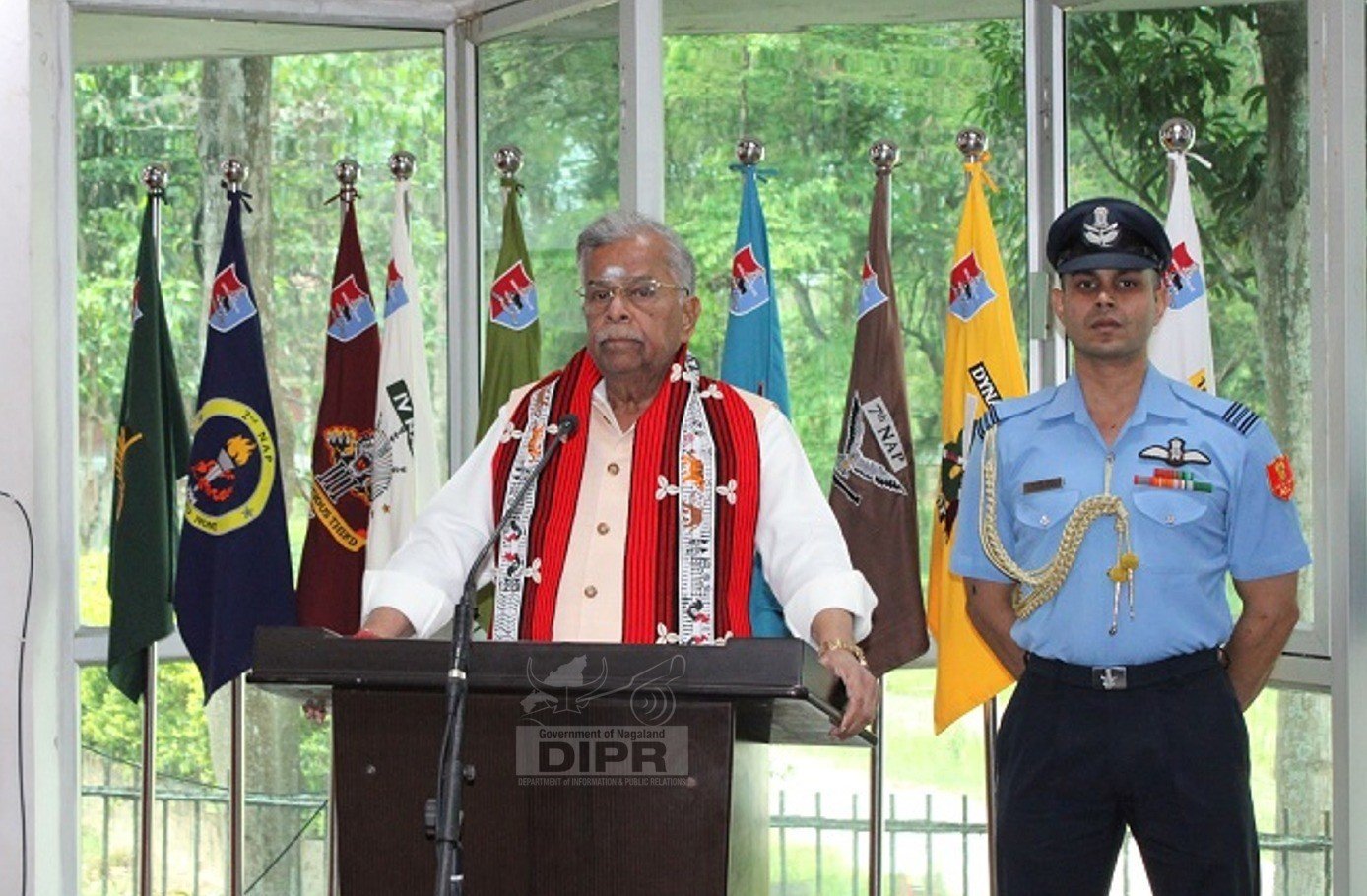Governor La Ganesan addressed the State Level Workshop on POCSO ACT & NDPS Act on Saturday at Rhododendron Hall, Police Complex, Chümoukedima. DIPR informed that the workshop was organised jointly by High Court Legal Services Committee, Kohima in collaboration with Department of Law & Justice, Department of Health and Family Welfare and Nagaland Police.
Governor La Ganesan, in his inaugural address, stated that Nagaland is not immune to the complexities and intricacies of the criminal justice landscape. He asserted that Protection of Children from Sexual Offences Act, 2012, stands as a beacon of hope in the quest to shield children from the trauma of sexual abuse and exploitation. However, the effective implementation and enforcement of this legislation are hindered by a myriad of challenges.
Similarly, the Narcotic Drugs and Psychotropic Substances Act, 1985 aims to fight drug abuse and trafficking that continues to ravage communities, posing a grave threat to public health and safety, especially that of youth. The Governor said that it is imperative that we confront the local obstacles that impede its efficacy the scourge of drug abuse and trafficking, he said.
He also mentioned that among the challenges facing our criminal justice system are the geographical constraints that hinder access to remote areas, the scarcity of resources and infrastructure, and the cultural nuances that influence perceptions of crime and justice. Additionally, the Governor said that the prevalence of traditional dispute resolution mechanisms and the stigma surrounding certain crimes often deter victims from seeking recourse through formal legal channels.
It is incumbent upon us to acknowledge these challenges and work collaboratively to address them and prioritize the training, capacity-building of our law enforcement personnel, judiciary, and medical professionals to ensure a more effective response to cases of child sexual abuse and drug-related offenses. Moreover, we must also engage with local communities to raise awareness, dispel myths, and foster trust in the formal justice system, he said.
Furthermore, the Governor stressed on using technology and innovation to overcome the geographical barriers and streamline processes for accessing justice. Likewise, information and communications technology enablement of courts, remote video conferencing, telemedicine, and online reporting mechanisms are just a few examples of how we can harness technology to enhance the efficiency and accessibility of our justice system, he said.
In conclusion, Governor La Ganesan urged all to remember that the true measure of success lies not only in the laws enacted or the cases prosecuted but the lives touched and the futures safeguarded. He encouraged all to strive, be beacons of hope, champions of justice, and guardians of children’s dreams. By doing so, we can make meaningful progress in strengthening Nagaland’s criminal justice system by working together in shaping a brighter, safer, and more inclusive future for Nagaland, the Governor added.
Director General of Police, Rupin Sharma, IPS in his address stated that POCSO and NDPS cases are a matter of concern for all of us and stressed upon stigmatization of the victims. “.. a victim cannot be seen as an outcast in the society, we all need to give respect to the victims and this can only be changed if the mind-set of the society changes”, he said. Sharma stated there is a need to put the system into place that encourages people to report and not stigmatize them and maintain a degree of secrecy not just of victims but also of the family and other witnesses. He urged the officers to take due care and investigate details of these cases so that desired results are achieved.
He also informed that Nagaland is an unarmed police centric State with 15 battalions of 16,000 people in the battalions and around 50% of the components of the district executive force is armed police where 70% of the Nagaland Police is involved in law & order duties and not investigation purposes.
We need to change, reinvent so better professionalism and better investigation will come into Nagaland Police, the DGP stressed. The only way Nagaland Police will be able to establish supremacy of law in the State and enhance trust and image in the minds of the public is through better investigation, he added.
Furthermore, referring to the increasing trend in drugs, Sharma urged the officers that these cases are to be dealt very carefully as they directly affect the health of the society and directed them to make utmost use of this workshop and see where they lack and identify the inadequacies and plug the loopholes to fill these gaps.
Highlights of the program included two working session focusing on the topics- On protection of Children from Sexual Offences (POCSO) Act, 2012 and Narcotic Drugs & Psychotropic Substances (NDPS) Act, 1985; Where under this topics different subjects was delivered by resource persons: Director, Judicial Academy, Assam, Justice ( Rtd) Mir Aifaz Ali; Co- founder Enfold Trust, Consultant Gynaecologist & Child Protection Trainer, Dr. Shaibya Saldanha, MD; DGP, Nagaland Rupin Sharma, IPS and District & Sessions Judge (Rtd) & Faculty Judicial Academy, Assam, S.P. Moitra, followed by interaction. Speeches were also delivered by Commissioner & Secretary, Dept. of Law & Justice, Anoop Kinchi, IAS; Commissioner & Secretary, Dept. of H&FW, V. Kezo.


